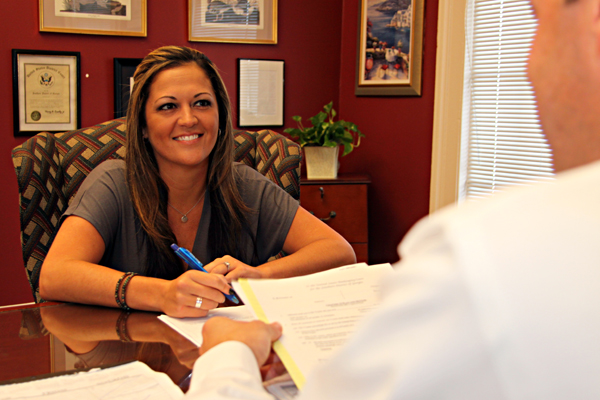As part of the bankruptcy consultation process, bankruptcy attorneys will want to review all of your creditor information. This will include any debts that you may want to keep, such as a house loan or car loan. A consumer will be required to sign a verification, under oath, that they have identified all of their creditors as part of their bankruptcy filing. In addition, this information is necessary – even if a consumer does not want to “include” the debt in a bankruptcy – so that the attorney can properly counsel the prospective client regarding their retention options. Finally, the secured debt needs to be addressed in some manner in the bankruptcy filing, either as designated in the statement of intentions in a Chapter 7 bankruptcy, or in a Chapter 13 plan.
The most common reason for the omission of a debt in a debtor’s bankruptcy schedules is because they cosigned for someone else who is responsible to make the payments. Because many creditors subscribe to electronic court record access, they will be made aware of a bankruptcy filing even if the debt was not disclosed. Since the debtor doesn’t consider it “their debt”, they fail to disclose it to their attorney. In addition to requiring the disclosure of all of your creditors, the bankruptcy petition also requires that any cosigners be notified of the bankruptcy filing as well. This allows the cosigners to take any necessary steps to protect their rights with respect to a loan based upon the filing of the bankruptcy case.
If a debtor is filing a Chapter 7 bankruptcy, and they have cosigned a car loan, they need to notify the creditor and the court of their intention with respect to the debt. Most bankruptcy attorneys will advise their clients against “keeping” or reaffirming a cosigned debt if they are not responsible to make the payments. As a result, the debtor’s liability on the cosigned debt will be discharged. This should not affect the cosigner’s right to retain the collateral, as long as they maintain the payments and other contractual obligations. But the benefit to the debtor is that they will have no personal liability on the debt if the cosigner should later become unwilling or unable to make the payments, and the collateral is repossessed. In a Chapter 13 repayment plan, the debtor must disclose that the payments on the cosigned debt will be paid by the cosigner. Otherwise, the creditor will file a claim in the debtor’s case, asking to be paid through the Chapter 13 plan.
Regardless of how the cosigned debt is treated in Chapter 7 or Chapter 13 bankruptcy, there could be consequences to the cosigners. Some lenders will stop mailing billing statements to the cosigners until they have verified how their debt is to be treated. They may also discontinue any automatic account drafts for the same reason. It is not uncommon for a cosigned lender in a Chapter 13 bankruptcy to list on the non-filing cosigner’s credit report that the “account is included in bankruptcy”. Because of the potential consequences to the debtor and the innocent cosigner, it is very important that you inform your bankruptcy attorney if you have cosigned any debts so that the consequences to the debtor and cosigner can be fully discussed.


